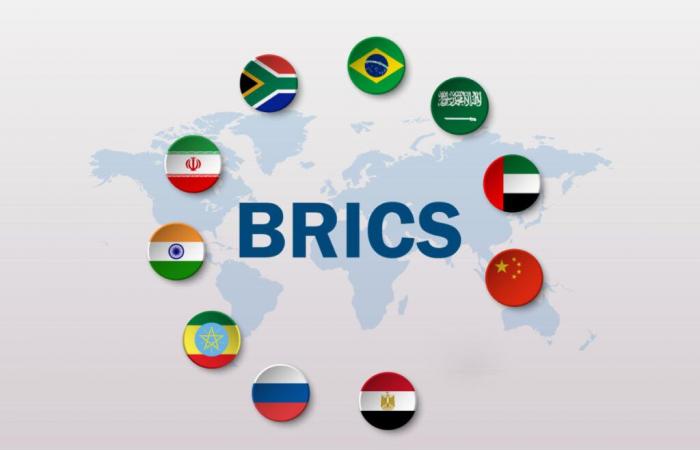Wheat, corn, rice, soya and even dairy production: the BRICS+ countries now dominate the markets for these agricultural raw materials and this endangers the United States and the dollar. The power of the BRICS countries, which manifests itself a little more each year, could well write the new rules of international trade tomorrow.
It is no longer a wave, but a tsunami that no one will be able to avoid: this image chosen by Olivier Antoine, specialist in agricultural markets and expert in agriculture, illustrates the growing weight of the BRICS+ countries, and the ongoing earthquake in the world trading in raw materials. Brazil, Russia, India, China, South Africa, Iran, Egypt, United Arab Emirates, Saudi Arabia and Ethiopia have been part of this entity since January 1, 2024 .
Over the years, these countries have become exporting powers which now dominate several markets. Despite the weight of the United States and the dollar in world trade, the BRICS+ represent almost 40% of global milk production, and more than 50% of the production of strategic cereals: wheat, corn, soya and rice.
Agriculture, the new weapon of BRICS+
To talk only about corn, in 30 years, production in the OECD increased by 70%, while that of the BRICS+ jumped by 220%. The pace of agricultural production in this bloc of countries could further accelerate in the years to come, because Brazil and Russia have the largest land reserves in the world, as recalled by Olivier Antoine, also president of the ORAE Geopolitics firm. .
What is the economic benefit of joining the Brics alliance?
Agriculture appears to be a new weapon for these countries. The first BRICS+ joint declaration last year in South Africa was centered around the issue of food security. Two months ago, Russian President Vladimir Putin went further with the announcement of the creation of a grain exchange where trade would take place in BRICS+ currencies. A clear intention to circumvent the hegemony of the dollar in trade, and also the start of the writing of new international standards, according to Olivier Antoine.
Brics, a new deal on the market
The Brics are today hiding less and less their desire to free themselves from the market rules drawn up over 50 years. The question today is no longer how far these new agricultural powers will go, but how quickly they will advance, and whether Western countries will be visionary enough to adapt to this new situation.






